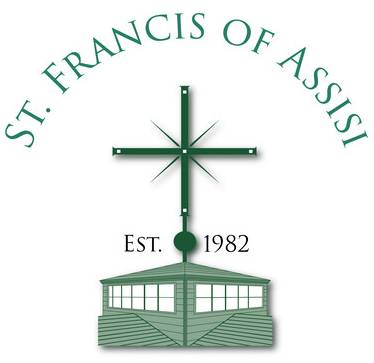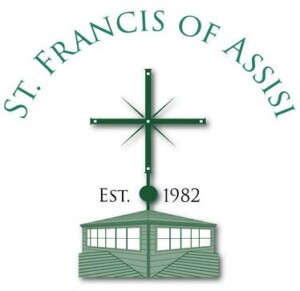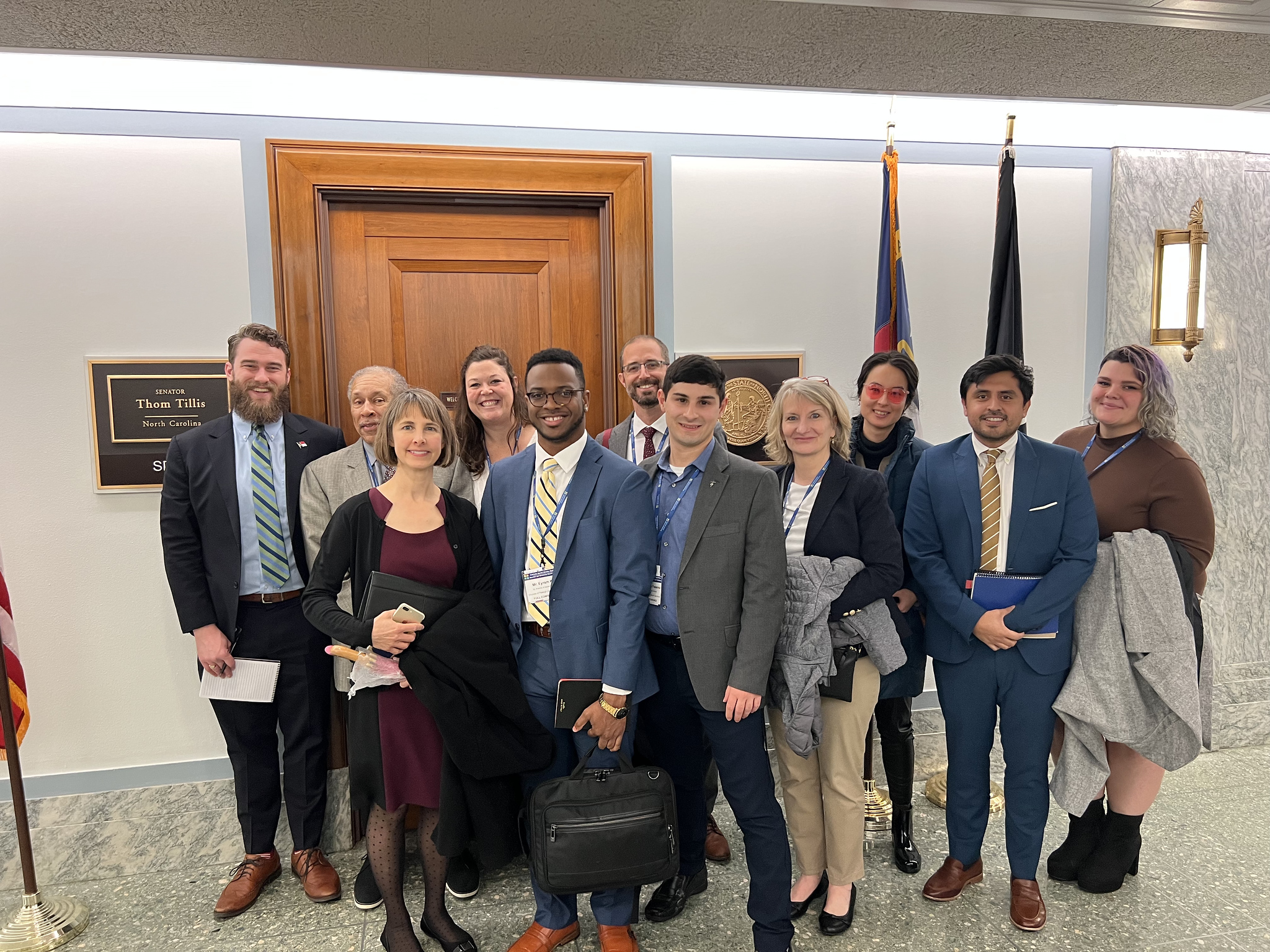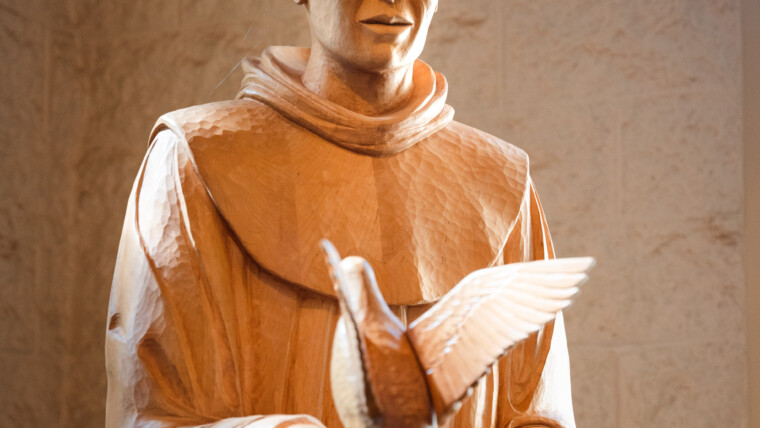“I left feeling proud to be Catholic, with a stronger calling to live out our Catholic Social Teaching.” That was how Sarah Velten Tappe, one of a group of St. Francis parishioners and staff who went to the Catholic Social Ministry Gathering at the end of January, felt after attending the 4-day event.
This annual conference, organized by the US Conference of Catholic Bishops (USCCB), focuses on the intersection of Catholic Social Teaching and pressing domestic and global challenges. The challenge is addressing how these issues affect our most vulnerable at home and worldwide. Held in Washington, DC, the conference includes liturgies and prayer, plenaries and workshops on various social problems, and an Advocacy Day on Capitol Hill. With around 600 Catholics from across the country, representing 44 states, all working in charitable outreach and justice work in the Church, this is a beautiful opportunity for networking and sharing ideas and best practices. It is also a very inspiring and impactful experience to learn about the work of the Church in addressing challenges affecting vulnerable people. This year’s conference used the Beatitude, ‘Blessed are the Peacemakers’ as a theme. Notably, a peacemaker is defined differently than someone who keeps the peace. Peacemaking entails advocating, praying, and serving in a way that calls individuals and society to a more just and dignified way of living and operating.
The late Pope Benedict XVI said, “The Church cannot and must not remain on the sidelines in the fight for justice.” Pope Francis continues challenging the Church to “come out of herself and go to the peripheries” in mercy, love, justice, and peace. As an example of this advocacy at the conference, the Archbishop of San Antonio Archbishop Gustavo García-Siller spoke eloquently about the Church’s involvement in organizing for healing and justice in the Diocese of San Antonio after last year’s Ulvalde shooting. He told of the importance of the Church’s participation in relational meetings with individuals in grief, trauma-informed mental health, and advocacy for tighter gun laws. “The Church has long been a leader in this sort of work,” says Director of Justice and Peace Trevor Thompson, “and it was inspiring to hear frontline stories of where the Church is leading the way and partnering with others to address challenges facing the vulnerable.” Trevor, Tim Fasano, coordinator of Justice and Peace, and six other parishioners traveled to this event from January 28th through 31st to represent the Catholic Community of St. Francis of Assisi. They share the experience with all of you.
Tim knows St. Francis has focused on those in need: “At St. Francis, we have a tremendous commitment to the poor and marginalized, particularly through the parish tithe. Active support enables response to the cries of the poor and the earth in our community and beyond.” However, he knows we still have room to do more and says, “I identify two specific areas. The first is in our advocacy for just state and national policies that provide a preferential option to all of the poor and vulnerable. The second area where we can grow is how we form our parishioners to live a faith dedicated to building a just society in their places of life and work.”
The other parishioners who attended were similarly inspired and enthusiastic in their shared desire to do more! Rosemary Herhold shares that, even though the conference’s focus is not evangelization, she says, “I was inspired to ‘think big,’ to be a catalyst; to build relationships with others and invite them into our community, where they can worship and serve. The Catholic Church in the US, and St. Francis in Raleigh, has an important mission.” After the conference, she said, “ I am more equipped to fulfill that important work.” Sarah Velten Tappe felt the same, commenting, “It was so inspiring to me to see what others are already doing, and what the church and Catholic organizations are doing to fight for the dignity of all people, from womb to tomb. I learned so much about Catholic Social Teaching, and the impact Catholic Health / Relief Services have worldwide.”
Parishioner Leon Cooke, a longtime fixture in service at St. Francis, was impacted by the peacemaker theme and Sr. Patricia Chappell’s keynote. He mentions that her speech was powerful in discussing the “challenges of being a peacemaker in our world. She stated that all social injustice issues are interconnected: politics; education; health; justice and should not be treated as silos and handled separately.” To that point, Leon was impressed with the reception they received from the congressional offices of our representatives. They met with Senators Thom Tillis and Ted Budd’s offices and House Representatives Valerie Foushee, Deborah Ross, and Wiley Nickel. Leon said, “I was amazed at our delegation’s reception from the congressional staff members. They were professional, dedicated, and young. More impressive was observing my fellow NC delegation members who displayed the desire and enthusiasm for promoting social justice issues in our parish and communities,” he said. “I, too, felt renewed strength in promoting my efforts in helping to provide equal justice for all.”
Trevor emphasized St. Francis’s role and how important it is for our representatives to know our concerns. He says it was important to share “our hopes that the legislators keep these issues and values in mind as they work on setting the budget and voting on policy. Because of our local work in places like Catholic Parish Outreach, with other community partners who serve vulnerable families, and our ministry work resettling Afghan parolees, we have a first-hand glimpse of the insecurity of an unknown future. We will continue to be involved in this advocacy work in our local areas of ministry as well.” He continued, “In our conversation with the staff on Capitol Hill, we spoke about the need to stay in touch regarding issues of concern. They were all very encouraging of us and grateful to have conversations with North Carolina Catholics about these issues of concern.
Sarah closes with how she remembers vividly that the conference emphasized our calling: “We don’t love others because they are Catholic, but because WE are Catholic; as a church and as Catholics, we are called to love every person, regardless of who they are and what they believe.”
Author: Mike Watson







